Evaluation of R&D Instruments for Fostering Academia-Industry Collaboration: The Case of the MAGNET Consortia
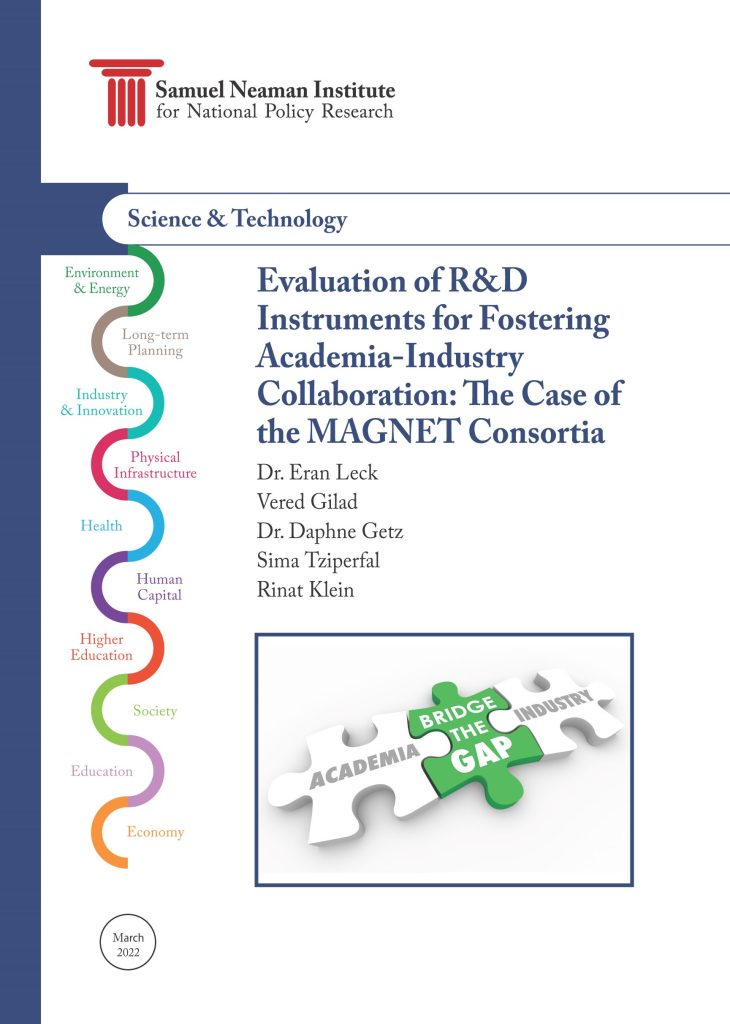
In this project, we implement a comprehensive approach for mapping and evaluating existing government tools and instruments for academia-industry collaboration in Israel and in selected countries. A special emphasis is placed on the evaluation of the IIA MAGNET Consortia Program, which constitutes the flagship of the IIA R&D instruments. The main goals of the research […]
Technological forecasting for scientific and technological human resources- Mapping, Best practices, and Policy recommendation for multidisciplinary studies in Israel

In recent decades, the demand for employees with multidisciplinary higher education has increased. In recent years, the Samuel Neaman Institute has conducted studies on technological forecasting for scientific and technological human resources needs. It was concluded from our studies that to meet the emerging industries’ needs for human resources, it is necessary to expand and […]
R&D Outputs in Israel / Analysis of Scientific Publications – 2021
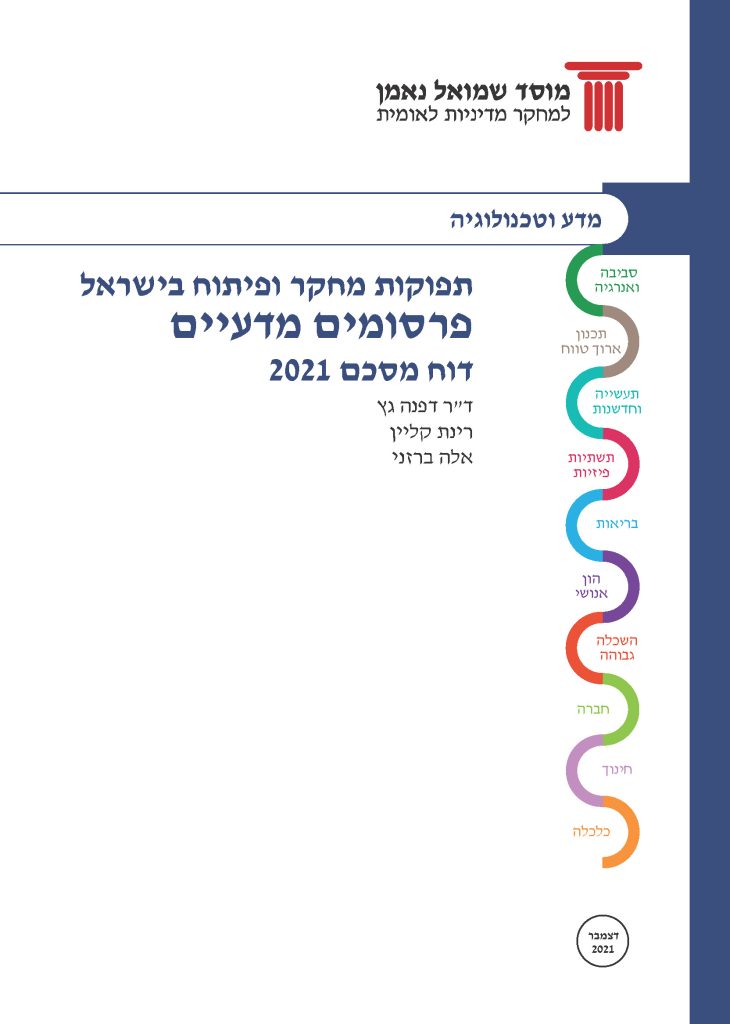
This study was conducted in 2021, based on data from bibliometric databases. The report examines the metrics of Israeli scientific publications in comparison with global research output (Chapter 1); Data of Israeli HCP / Highly Cited Papers (Chapter 2); Patterns of Israeli articles included in Nature Index (Chapter 3); Mapping of university rankings indicators (Chapter […]
R&D outputs in Israel: Analysis of academia-industry collaboration in inventive activity
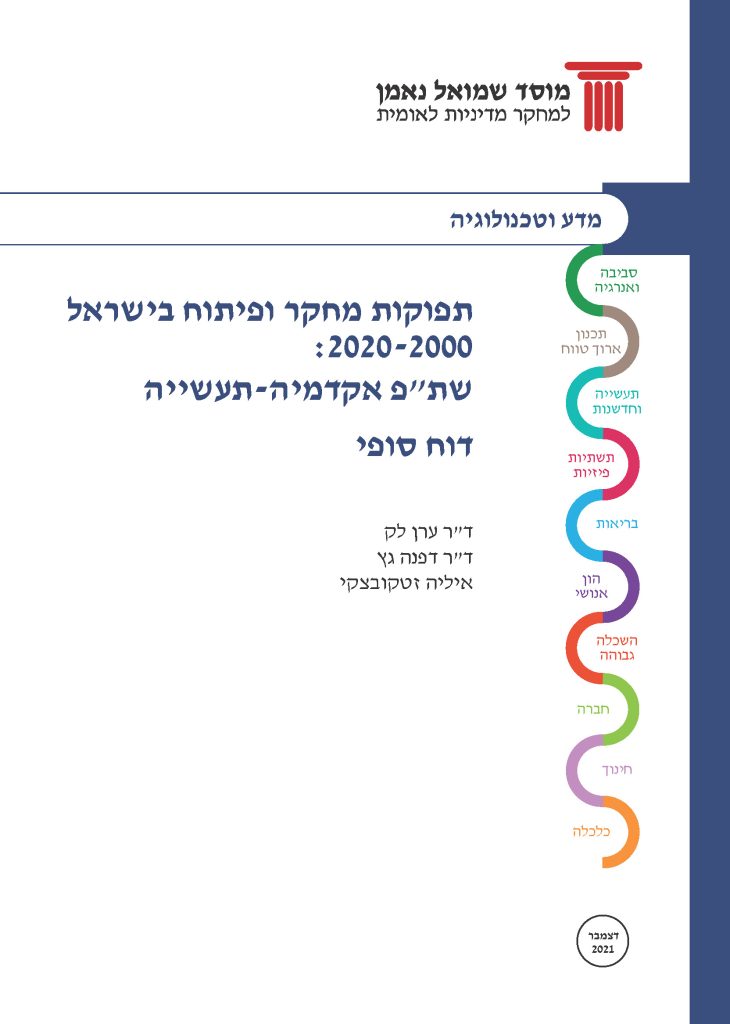
This report presents statistics on the inventive activity of Israeli inventors and applicants. The report includes an analysis of patent applications in the PCT track, an analysis of inventive activity by leading assignees, distribution of inventive activity by sectors and technological fields and an analysis of the globalization aspects of Israeli inventive activity. An extended […]
Science, Technology, and Innovation Indicators in Israel: An International Comparison -2021 – Part a – Key figures
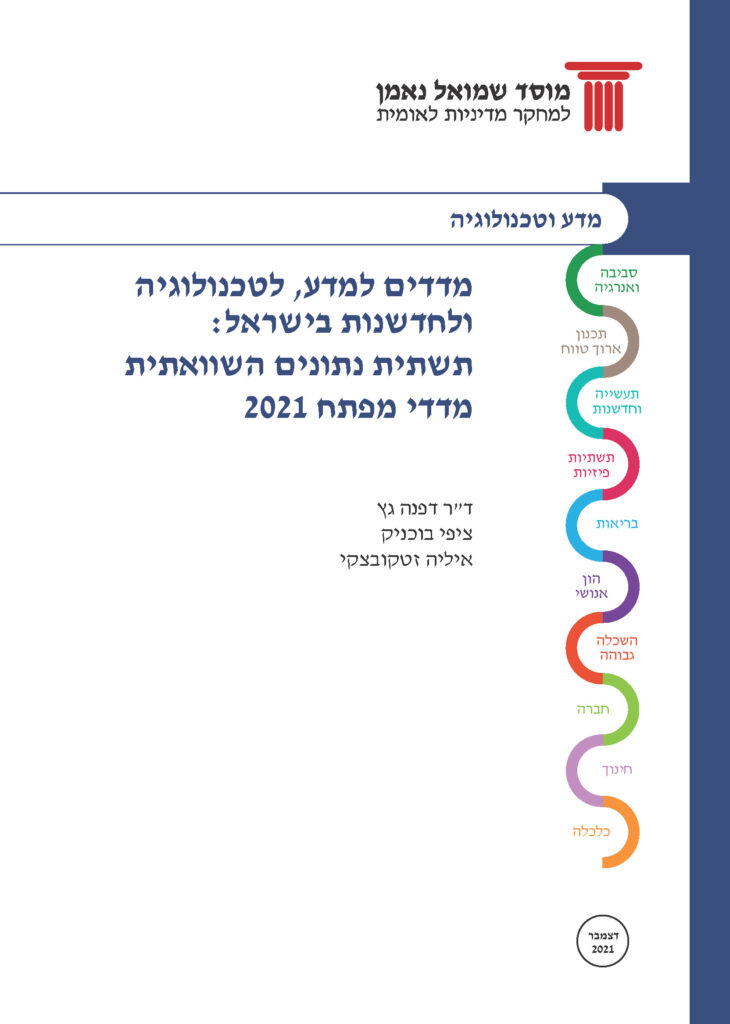
Neaman Institute is pleased to present the ” Science, Technology, and Innovation Indicators in Israel: An International Comparison – 2021″. This publication contains many key figures for Israel regarding science and technology input and output, and covers more than a decade of international comparisons, as well as many other indices. This information can contribute to […]
Science, Technology and Innovation Indicators in Israel: An International Comparison -2021 – part B
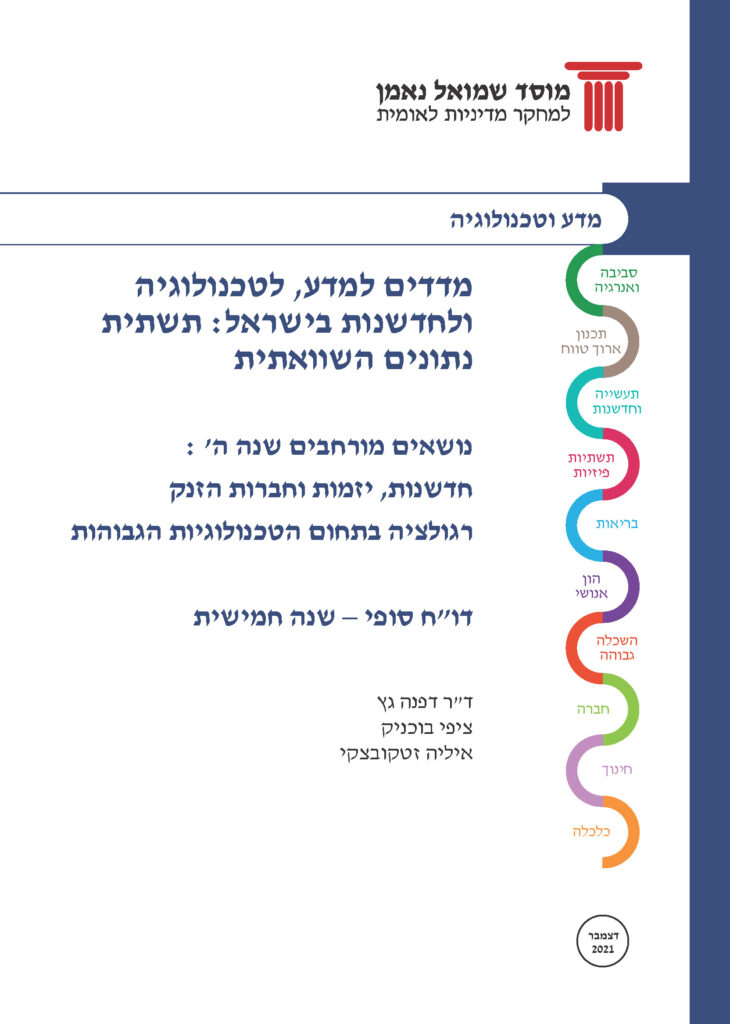
Neaman Institute is pleased to present the “Science, Technology, and Innovation Indicators in Israel: An International Comparison – 2021”. This publication contains many key figures for Israel regarding science and technology input and output, and covers more than a decade of international comparisons, as well as many other indices. This information can contribute to the […]
The Global Economic Impact of the Russia-Ukraine War
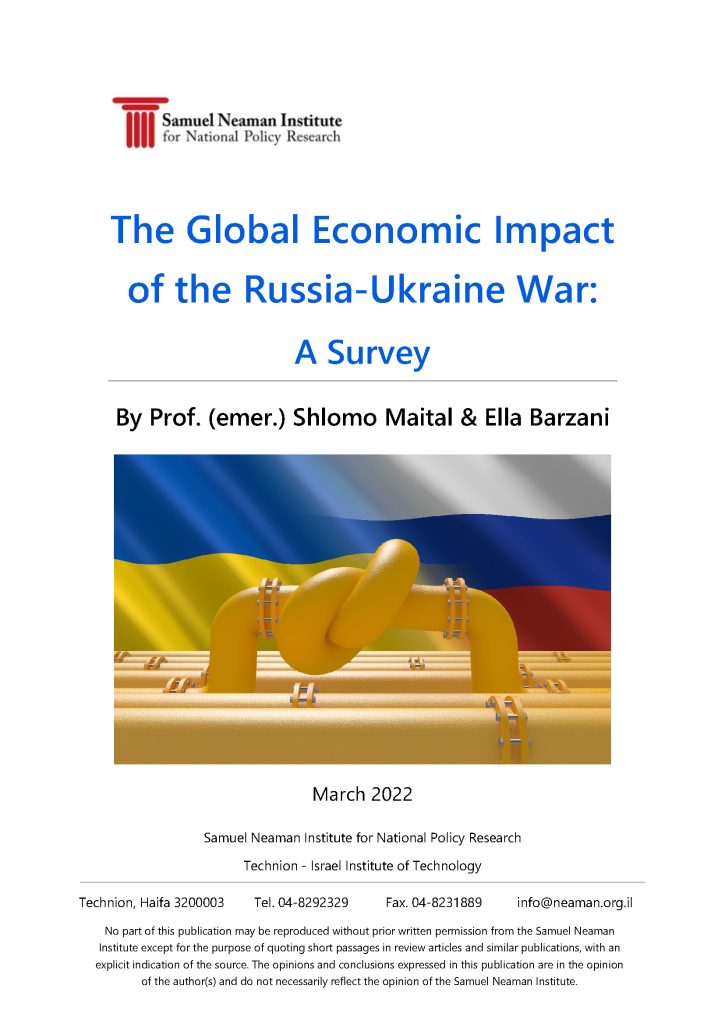
This survey was prepared 20 days after Russia launched its invasion of Ukraine. It reviews what we regard as credible knowledgeable insights on: stagflation, supply chain issues, ‘when the guns fall silent’, China as ‘monkey in the middle’, geopolitics and policy recalculation, and a conclusion.
Fundamental Elements in Designing Climate Law, and Recommendations for Implementation in Israeli Legislation
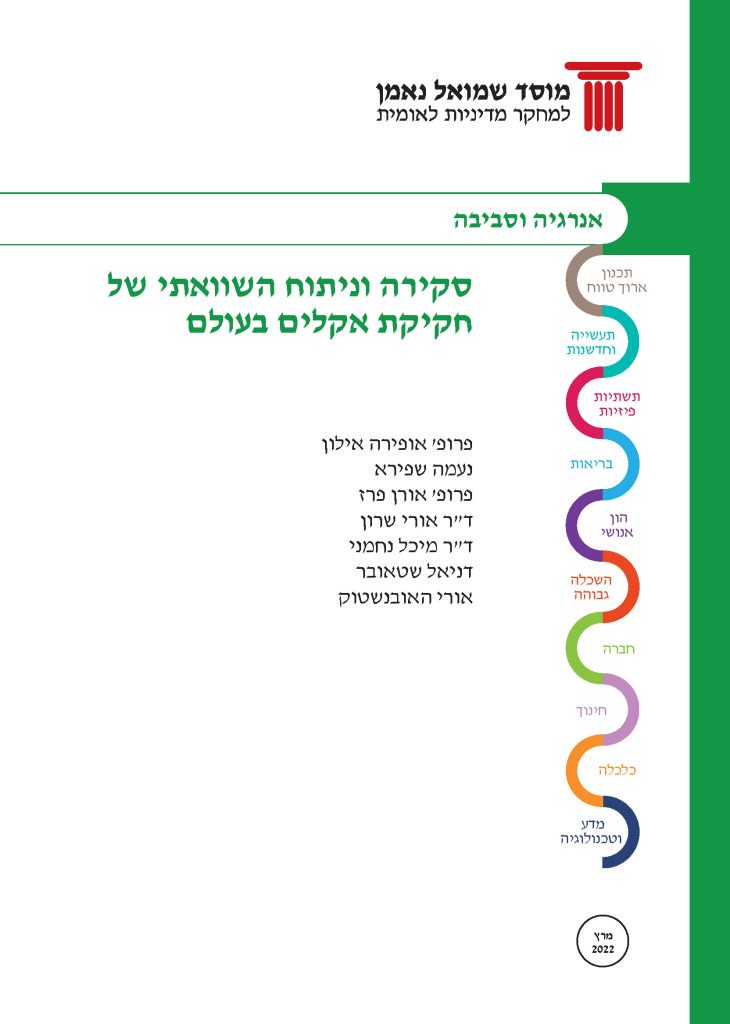
As part of a joint-venture between the Samuel Neaman Institute and the Ministry of Environmental Protection, a team of researchers from the Samuel Neaman Institute, the Faculty of Law at Bar Ilan University and the London School of Economics was formed in 2020. As part of a joint-venture between the Samuel Neaman Institute and the […]
Sex and Gender Informed aspects in medical and health professions curricula
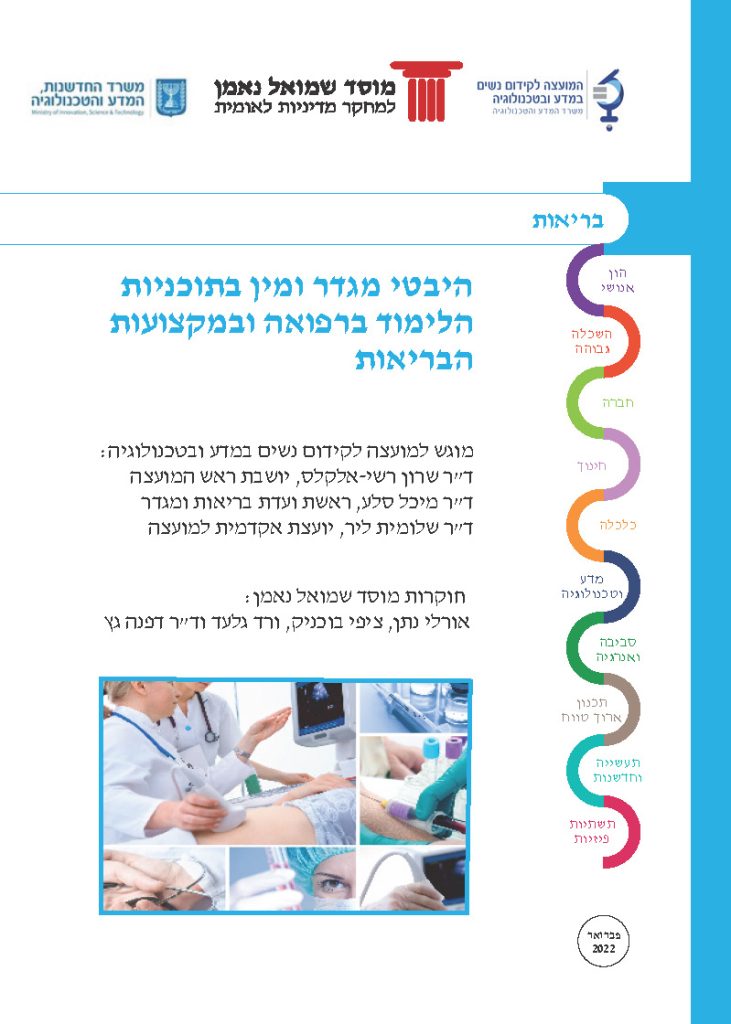
The study was commissioned by the Health and Gender Subcommittee of the National Council for the Advancement of Women in Science and Technology. Gender and sex informed medicine is a field designed to develop tools for optimal diagnosis and treatment for men and women, with the awareness that the functioning of all body systems is […]
Violence, Crime, and Policing in Arab Society in The Age of Covid
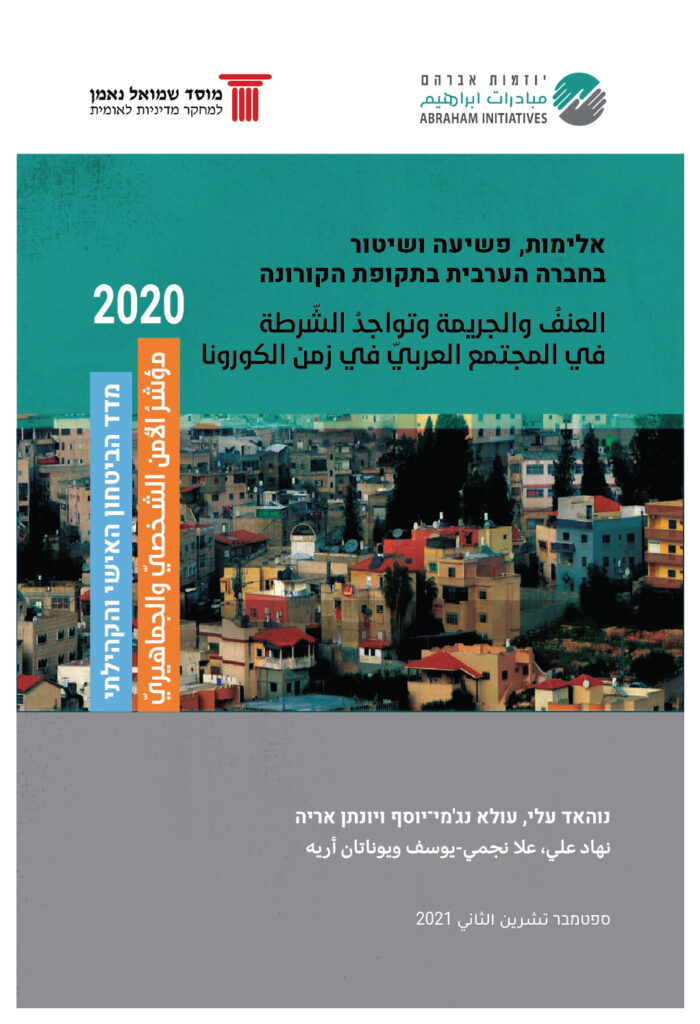
Link to the full Report Following are the main results from the survey as specified in the report: The data indicate that respondents from the population of Palestinian citizens of Israel feel a lack of personal security because of violence in their communities to a significantly greater extent than respondents from Jewish society. Among the […]
